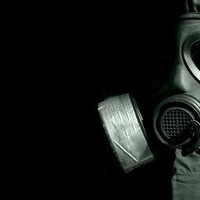
почему люди совершают преступления?Чем преступление отличается от проступка
 0
0
 0
0
Ответы на вопрос
 Внимание! Ответы на вопросы дают живые люди. Они могут содержать ошибочную информацию, заблуждения, а также ответы могут быть сгенерированы нейросетями. Будьте внимательны. Если вы уверены, что ответ неверный, нажмите кнопку "Пожаловаться" под ответом.
Внимание! Ответы на вопросы дают живые люди. Они могут содержать ошибочную информацию, заблуждения, а также ответы могут быть сгенерированы нейросетями. Будьте внимательны. Если вы уверены, что ответ неверный, нажмите кнопку "Пожаловаться" под ответом.

Проступок- слабой тяжести
 0
0
 0
0

Why do people commit crimes?
The reasons why people commit crimes are complex and multifaceted. There is no single answer that can explain all criminal behavior, as it can vary greatly depending on individual circumstances and motivations. However, there are several common factors that can contribute to criminal behavior:
1. Socioeconomic Factors: Poverty, unemployment, and lack of access to education and resources can increase the likelihood of criminal behavior. Economic hardships may push individuals towards illegal activities in order to survive or improve their circumstances.
2. Psychological Factors: Some individuals may have underlying psychological issues, such as personality disorders, impulse control problems, or substance abuse disorders, which can contribute to criminal behavior. Mental health issues can impair judgment and decision-making, leading to illegal actions.
3. Social Environment: Growing up in a disadvantaged or dysfunctional family environment, with exposure to violence, abuse, or criminal role models, can increase the risk of criminal behavior. Peer pressure and social influence can also play a significant role in shaping an individual's behavior.
4. Lack of Moral Development: Some individuals may have a limited understanding of moral values and ethical principles, which can lead to a disregard for the rights and well-being of others. This lack of moral development can contribute to criminal behavior.
5. Opportunity: The presence of opportunities for criminal activity, such as easy access to weapons, vulnerable targets, or loopholes in the legal system, can tempt individuals to engage in illegal actions.
It is important to note that these factors do not excuse or justify criminal behavior, but rather provide insights into the complex interplay of various influences that can contribute to criminal actions.
How is a crime different from a wrongdoing?
While both crimes and wrongdoings involve actions that are considered morally or legally unacceptable, there are some key differences between the two:
1. Legal Consequences: Crimes are typically defined by law and carry legal consequences, such as fines, imprisonment, or probation. They are considered offenses against society as a whole and are prosecuted by the state. Wrongdoings, on the other hand, may not have specific legal consequences and are often addressed through informal means, such as apologies, restitution, or social disapproval.
2. Severity: Crimes are generally more serious offenses that can cause significant harm to individuals or society. They often involve intentional acts that are prohibited by law, such as murder, theft, or fraud. Wrongdoings, on the other hand, may refer to less serious or minor transgressions that may not necessarily violate specific laws but are still considered morally or socially unacceptable, such as lying or breaking a promise.
3. Intent: Crimes typically require a certain level of intent or mens rea, meaning that the person committing the act must have had the intention to engage in the illegal behavior. Wrongdoings, on the other hand, may not necessarily require intent and can be the result of negligence, carelessness, or thoughtlessness.
It is important to note that the distinction between crimes and
 0
0
 0
0
Топ вопросов за вчера в категории Обществознание
Последние заданные вопросы в категории Обществознание






-
Математика
-
Литература
-
Алгебра
-
Русский язык
-
Геометрия
-
Английский язык
-
Химия
-
Физика
-
Биология
-
Другие предметы
-
История
-
Обществознание
-
Окружающий мир
-
География
-
Українська мова
-
Информатика
-
Українська література
-
Қазақ тiлi
-
Экономика
-
Музыка
-
Право
-
Беларуская мова
-
Французский язык
-
Немецкий язык
-
МХК
-
ОБЖ
-
Психология
-
Физкультура и спорт
-
Астрономия
-
Кыргыз тили
-
Оʻzbek tili











